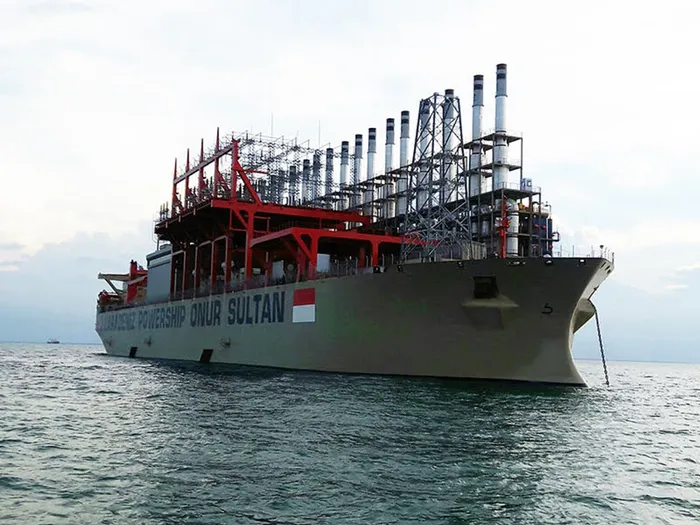
The Pretoria High Court has set aside three electricity generation licences issued to Karpowership
Image: Supplied
The Pretoria High Court has set aside three electricity generation licences issued to Karpowership by the National Energy Regulator of South Africa (Nersa).
The decision follows a legal challenge by the Organisation Undoing Tax Abuse (OUTA), which questioned the lawfulness and transparency of the licensing process.
"The licences were issued by the National Energy Regulator of South Africa (Nersa), and were a crucial step in the government’s plan to sign 20-year deals with the floating power stations as “emergency” electricity,". OUTA said.
"The deals were expected to have cost about R200 billion over the 20 years, an amount that would have been added to the price of electricity".
The court order said “decision of the first respondent [Nersa] to award a generation licence to the second respondent [Karpowership]” was “reviewed and set aside”, for each of the three generation licences.
The generation licences were issued in 2021 under the Risk Mitigation Independent Power Producer Procurement Programme (RMIPPPP), aimed at urgently addressing South Africa’s electricity shortfall.
According to OUTA, the court case played a major role in unravelling the Karpowership deals, particularly after Eskom eventually declined to grant grid access to the project.
Last year, Minister of Electricity Kgosientsho Ramokgopa had also confirmed the Karpowership projects missed important deadlines and would not go ahead as planned.
However, despite this, the organisation continued to call for unequivocal confirmation that the deal had been permanently shelved.
In a statement issued to the media on Thursday, OUTA said that the victory represents a significant win for the public.
“The Karpowership deals are now absolutely dead. It will never be loaded onto your electricity bill,” Advocate Stefanie Fick, Executive Director of OUTA, said.
“This ruling is a powerful affirmation that decisions involving billions in public funds must comply with the law. We challenged this process because the public deserves transparency, proper oversight, and value for money, none of which were present in this licensing saga.”
IOL News
mthobisi.nozulela@iol.co.za
Related Topics: